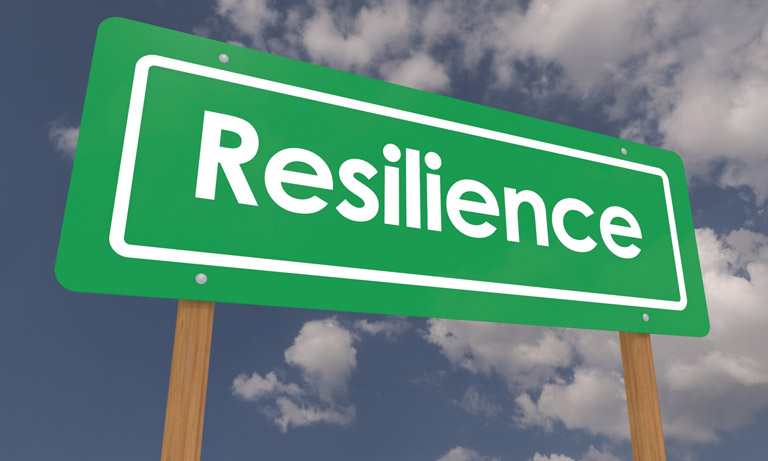 Gratitude is an important part of resilience, with appreciating help from others as important as offering your help to them
Gratitude is an important part of resilience, with appreciating help from others as important as offering your help to themSome people sail through adversity and maintain a positive outlook despite encountering setbacks, while others quickly become disillusioned and struggle to find a way forward. Psychologists researching the personality traits typically associated with resilience have discovered that focusing on just a few techniques can help you to boost your resilience.
A resilient person is not only able to handle a difficult experience in the moment but also bounces back quickly afterwards. They can handle pressure rather than losing their cool; therefore, learning how to effectively cope with stress is important.
Central to this is developing supportive relationships and knowing that it is perfectly acceptable to receive help and support from others. Gratitude is an important part of resilience, with appreciating help from others as important as offering your help to them.
You will encounter unexpected challenges and obstacles at work that are beyond your control; however, you can control how you interpret and react to them. It is important to accept and adapt to the change in circumstances and to break it down into small steps. Set yourself realistic goals so that it seems more achievable, and view the challenge as a learning opportunity.
Tackle problems head-on rather than avoiding them, and use your experiences of dealing with hardship, loss or emotional problems to be decisive. You have accumulated much knowledge and insight and know what works, so be confident in your recommendations and actions. Be hopeful and optimistic, and visualise what you want.
You develop resistance by managing your thoughts, behaviours and actions, and building personal resilience requires focusing on the three Cs: commitment, control and challenge:
- Commitment: believe and commit to a cause to create a sense of stability and purpose.
- Control: be assertive and focus on what you can change, disregarding what you cannot change so that you are less reactive to the frustrations of life.
- Challenge: view change as an opportunity to learn and grow. Use your knowledge and experience to turn any situation into an advantage.
Looking after yourself and getting the work-life balance right will give you the balance and strength to deal with difficult situations. Being positive and developing strong social networks are important tools when it comes to developing problem-solving skills and establishing goals. Take a step back, view situations in a realistic way to assess what is before you, and then brainstorm possible solutions.
Resilience is something that can be learned by practising these characteristics, at the same time building upon your natural strengths.
Join Over 40,000 Recruiters. Get our latest articles weekly, all FREE – SEND ME ARTICLES
Recruiters love this COMPLETE set of Accredited Recruitment & HR Training – View Training Brochure








